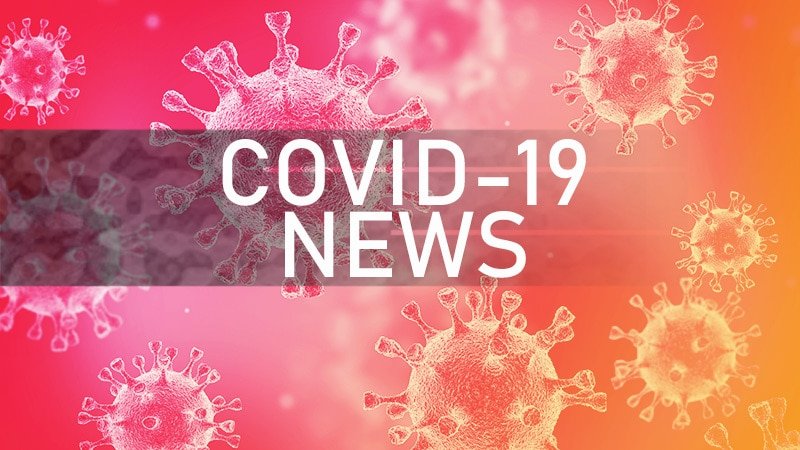Editor’s note: Find the latest COVID-19 news and guides at Medscape’s Coronavirus Resource Center.
A number of new studies that were published overnight examining Omicron’s ability to bypass a number of currently available vaccines suggest a significant loss of protection against the highly mutated variant.
The new studies by research teams from Germany, South Africa, Sweden and pharmaceutical company Pfizer showed a 25- to 40-fold decrease in the ability of antibodies produced by two doses of the Pfizer BioNTech vaccine to neutralize the virus.
But there also seemed to be a ray of hope in my studies. The virus did not completely escape the immunity of the vaccines, and administration of a third booster dose appeared to restore antibodies to levels previously associated with protection against variants.
“One of the silver linings of this pandemic so far is that mRNA vaccines made based on the ancestral SARS-CoV-2 continue to work against variant strains in the laboratory and especially in real life,” said Hana El Sahly, MD. Professor of Molecular Virology and Microbiology at Baylor College of Medicine, Houston. “So far, the strains have differed in their degree of neutralization by the antibodies from these vaccines, but they are still neutralized.”
El Sahly points out that the beta variant was linked to a 10-fold drop in antibodies, but two doses of the vaccines still protected it.
President Biden welcomed the study results as good news.
“This Pfizer lab report came back saying that the existing vaccines are expected to protect against Omicron. But if you get the booster you are really in good shape. So that’s very encouraging, ”he said at a press conference that afternoon.
More research needed
However, other scientists stressed that these studies came from laboratory tests and do not necessarily reflect what will happen to Omicron in the real world. They warned of global pressure for booster vaccinations as so many countries still struggle to give their first doses of vaccines.
Soumya Swaminathan, MD, senior scientist for the World Health Organization, said in a press conference today that the results of the four studies were very different, showing a decrease in neutralizing activity with Omicron ranging from 5 to 40 times.
The laboratory tests performed were also varied and involved a small number of blood samples from patients.
She stressed that immunity depends not only on neutralizing antibodies, which act as the first line of defense when a virus enters, but also on B and T cell disease and death – was less affected than antibodies.
“I therefore think it is premature to conclude that this decrease in neutralizing activity would result in a significant decrease in the effectiveness of the vaccine,” she said.
However, whether these first-generation vaccines will be enough to stop Omicron remains to be seen. A study of the Pfizer, Moderna, and AstraZeneca vaccines led by German doctor Sandra Ciesek, MD, who heads the Institute of Medical Virology at the University of Frankfurt, shows that a booster didn’t seem to hold up well over time .
Ciesek and her team exposed Omicron virus to the antibodies from volunteers who had been boosted with the Pfizer vaccine 3 months ago.
She also compared the results to what happened to the same 3 month antibody levels against Delta variant viruses. They found only 25% neutralization of Omicron compared to 95% neutralization of Delta. This corresponded to an approximately 37-fold reduction in the ability of the antibodies to neutralize Omicron against Delta.
“The data confirms that developing a vaccine customized for Omicron makes sense,” she tweeted as part of a long thread she published on her findings.
Retrofitting vaccines?
Both Pfizer and Moderna are upgrading their vaccines to better match the changes in the Omicron variant. In a press release, Pfizer said shipments of this updated vaccine could begin until March pending approval from the U.S. Food and Drug Administration.
“What the booster is really doing in neutralizing Omicron right now, they don’t know, they have no idea,” said Peter Palese, PhD, chair of the microbiology department at the Mount Sinai School of Medicine in New York City.
Palese said he was definitely concerned about a possible Omicron wave.
“There are four main sites on the spike protein that are being attacked by antibodies from the vaccines, and all four sites have mutations,” he said. “All of these important antigenic sites are changed.
“If Omicron becomes the new Delta and the old vaccines really aren’t good enough, we have to make new Omicron vaccines. Then we’ll all have to re-vaccinate twice, ”he said, and the cost could be staggering. “I am anxious.”
On Wednesday, Tedros Adhanom Ghebreyesus, PhD, WHO director general, urged countries to act quickly.
“Do not wait. Take action now, ”he said before all of the scientific evidence was available. “All of us, every government, every individual should use all the tools we have right now” to reduce transmission, increase testing and surveillance, and share scientific knowledge.
“We can prevent Omicron [from] becomes a global crisis, “he said.
For more news, follow Medscape on Facebook, Twitter, Instagram, YouTube and LinkedIn

